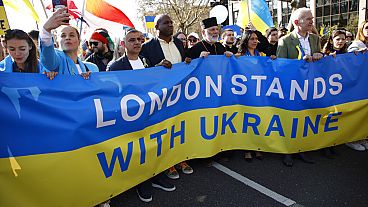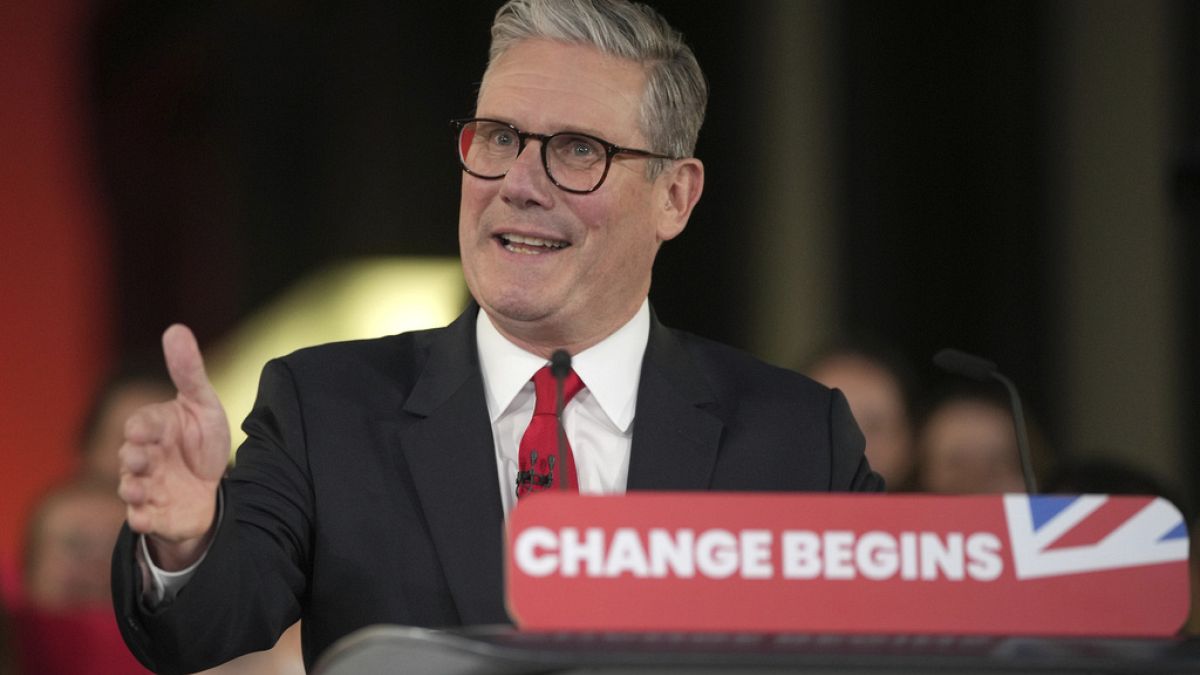The 61-year-old lawyer turned Labour politician has brought the party to victory in Westminster.
The Labour party have officially won the UK's general election, surpassing the number of 326 seats out of 650 to win a majority.
But who is Keir Starmer, the Labour leader who will replace Rishi Sunak as UK Prime Minister?
Born in 1962 in London, Starmer was a human rights lawyer before becoming the Director of Public Prosecutions from 2008 to 2013.
During the election campaign he's been keen to talk up his working-class background — repeatedly mentioning during televised debates that his father was a toolmaker, his mother a nurse.
Indeed his association with left-wing politics is longstanding — as he shares his rare first name with Keir Hardie, who founded the Labour Party in the late nineteenth century.
He became an MP in 2015 for a constituency in Camden, North London — where, in 2019, he took nearly 65% of the vote, a healthy result for an election which otherwise saw sweeping losses for Labour.
Corbyn's successor
He became party leader in 2020, when Jeremy Corbyn — the beleaguered left-winger who'd suffered multiple election defeats — stood down.
Starmer won over 56% of the vote against two other candidates — one of whom, Lisa Nandy, is now his shadow international development secretary.
Starmer has also had a long interaction with European issues, having served as Corbyn's Brexit spokesperson from 2016 to 2020, a period when political fervour over the results of the UK's fateful referendum was at its peak.
He'd supported the case for remaining in the EU — and then repeatedly pushed the government to come up with a more developed exit strategy, or even hold a further referendum on the issue.
But he may have had a change of heart. Starmer's current electoral platform pledges no return to the EU's single market or customs union, though he has said he'd like to improve Boris Johnson's "botched" Brexit deal.
Pragmatic shift
It's not the only area where Starmer's made a noticeable shift towards pragmatism as the prospect of power grew closer.
His recent backtracking on a pledge to fund £28 billion (€33bn) a year in green investment — a U-turn which he argued was needed to balance the books — was criticised by trade unions and environmental campaigners.
He's also not succeeded in repairing relations with the left of his own party, in particular Corbyn, whom Starmer suspended from the party amid an anti-Semitism scandal.
Corbyn is now standing against Labour as an independent candidate in the London constituency for which he's been MP since the 1980s, which some polls suggest Corbyn may win.
With the prospect of achieving an electoral victory greater than the Labour party ever achieved — compared to Corbyn's two successive losses — Starmer may feel that was a hit worth taking.












